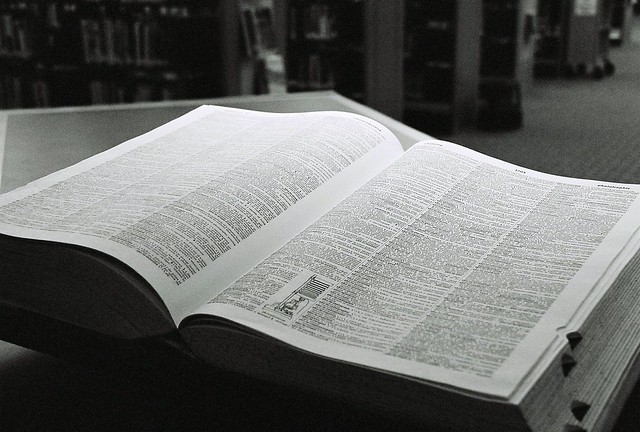
With the literary and publishing landscapes in near-constant states of flux, once-familiar terms have come to seem unfamiliar (saying that you’re “reading a book on your phone,” for example, would, not so long ago, have been evidence of madness). With that in mind, we offer these baseline definitions for our ever-changing reading world.
Political Autobiography: An autobiography, often released during a campaign cycle, meant to portray its author as something other than the craven, amoral, failure-prone, friendless, cash-whore shitneck that he or she actually is.
Celebrity Autobiography: A way for a given celebrity to relate fascinating, behind-the-scenes stories in the inimitable voice of his or her disgruntled freelance ghostwriter.
Young Adult (Genre): Narratives that highlight their teenage characters’ struggles with totalitarian societies, supernatural creatures, and sustaining readers’ interest over three or more installments.
Historical Fiction (Genre): A literary genre in which authors may write about historical figures without remaining faithful to historical fact. (See Einstein Gleams the Cube, by E.L. Doctorow (Random House, 1991).)
Horror (Genre): Stephen King.
E.L. James: An inexplicable phenomenon, usually affecting one’s vision, which makes Stephenie Meyer look like Joan Didion.
Knausgård: To brood incessantly over seemingly trivial matters. (“Jim is in the study with the lights off, Knausgårding about the Celtics game.”)
Gladwell: To make a forceful, if tenuously supported, claim. (“Wait, you’re saying that Roe v. Wade led to the rise of independent hip-hop? Don’t Gladwell me, man.”)
Wuthering Heights: A method of killing any nascent interest in reading that a high-school student may have.
Go Set a Watchman: To reap an unscrupulous profit from the elderly and infirm. (“Gary sent his rich aunt a get-well card, but he’s just trying to Go Set a Watchman her.”)
Brick-and-Mortar Bookstore: A type of small business so unique and charming that Amazon.com — online purveyors of dishwashers, tube socks, and lice shampoo — is now attempting to make inroads in the market.
Library: A structure, often found in schools and municipalities, that houses rows of outdated computers, often surrounded by books.
Audiobook: A method for allowing John Lithgow to pay the taxes on his second vacation home.
Library Book: A system of delivering old receipts, ancient ketchup stains, and dry, flattened boogers from one patron to the next.
Hardcover Book: A product that encourages consumers to pay 14 extra dollars for two pieces of heavy cardboard.
Borrowed Book: An item which, when loaned to a friend or family member, will be returned as often as four percent of the time.
Epigraph: A chosen quote that appears before the first chapter of a book, generally written by a more skilled writer than the book’s actual author.
Blurb: Praise, often appearing on a book’s back cover, written in prose so purple as to distract from the fact that the blurb’s writer merely skimmed the book while watching television.
Author Photograph: A promotional image of an author, meant to portray its subject as something other than the sallow, computer-bound shut-in that he or she actually is.
Aspiring Novelist: A person often seen frowning worriedly into his or her sticker-covered laptop at any number of urban coffee shops.
Voracious Reader: A phrase meant to inform you of its speaker’s endless appetite for knowledge, learning, and being perceived as intelligent.
Internet Humorist: A person who overestimates his own propensity for humor, and is grievously enabled by the Internet’s need for cheap, disposable content.
Image Credit: Flickr/greeblie.








